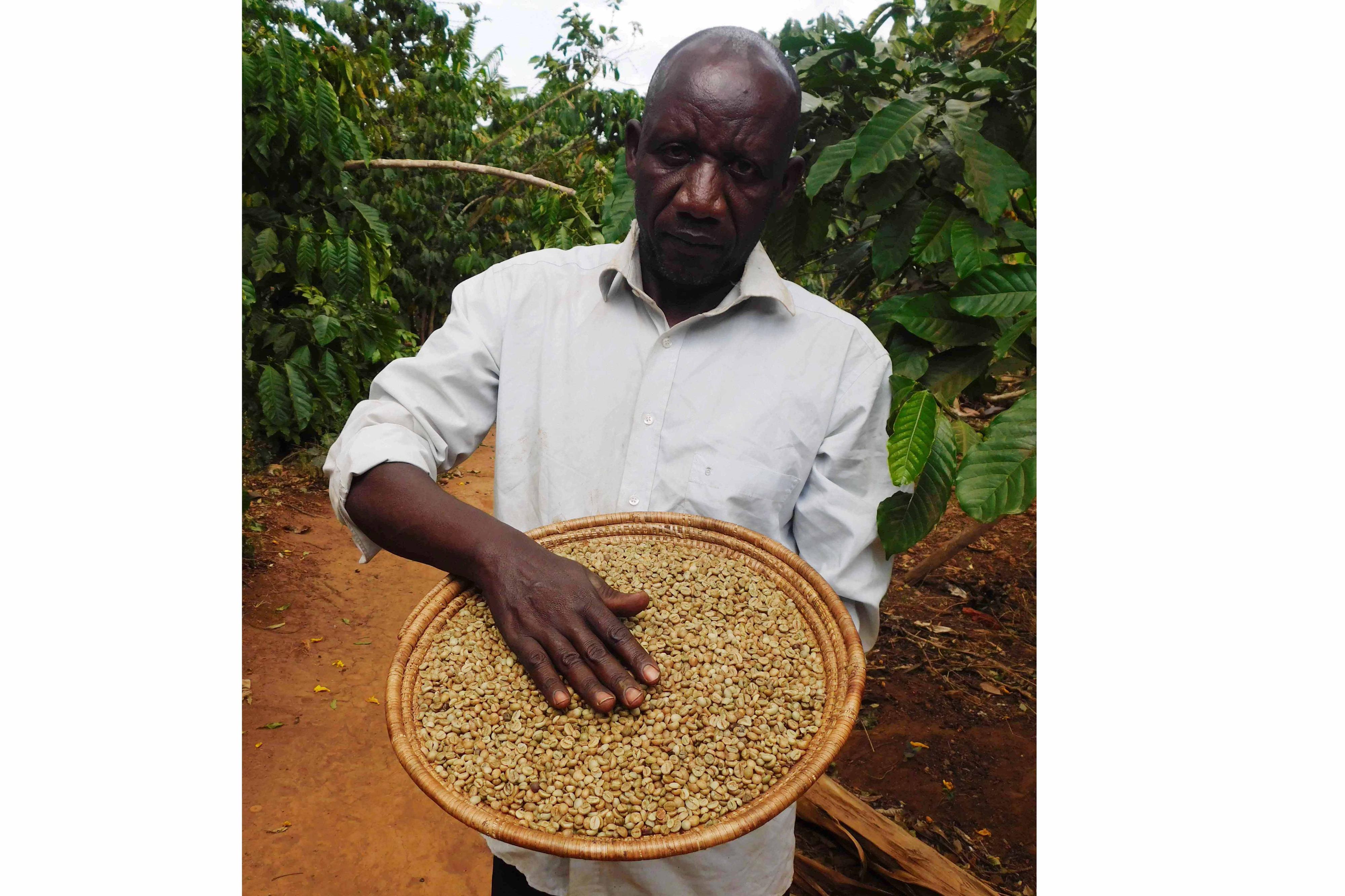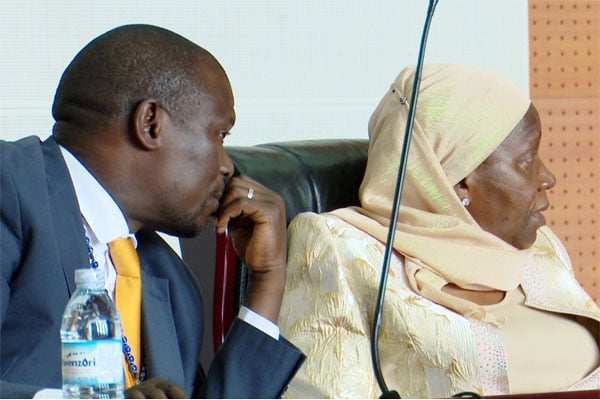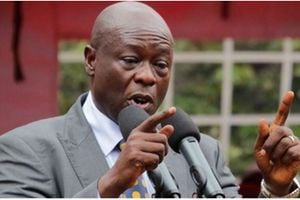Prime
Increasing coffee earnings through value addition

Mr Nsamba says the coffee beans should have the khaki clou. Photo/Michael J Ssali
What you need to know:
- Uganda which today produces some 8 million 60kg-bags (480,000 metric tonnes) annually seems to be rapidly increasing production and looks set to hit annual production of 20 million 60kg-bags and even beyond in just a few years from now.
In 1997 I was greatly honoured and extremely surprised to receive an invitation from the American Embassy in Kampala to visit the United States (US) for about three weeks at the expense of the American government under the International Visitor Programme.
I am not sure if the programme still exists but back then the US government used to invite about 700 people from across the world every year to spend a few weeks visiting different parts of the country.
That year, I was the only one invited from Uganda, but a total of 67 of us from across Africa participated in the programme. I left Entebbe in a Sabena aircraft and I had to switch planes in Brussels. I had to wait for some hours there before boarding another plane (United Airlines) which took me to Washington.
Cup of coffee
As I waited at the airport in Brussels, I chose to have some coffee and two sausages for my breakfast at a restaurant. The coffee was very good and the sausages quite delicious.
But as a coffee grower myself from the greater Masaka region I felt rather cheated to be charged $10 (Shs37,000) for the enjoyment I had just had.
I realised I had drunk only half a small spoon of coffee powder mixed in a mug of hot water yet the farm gate price for an entire kilogramme of coffee beans in Uganda was hardly one third of a dollar.
Disparity
The restaurant attendant was a friendly guy who also spoke English which made it easy for me to raise the issue of the big disparity between the high coffee price at his restaurant and what was paid to the coffee farmer in my country. He responded by telling me the obvious --- that I should factor in transport costs of coffee from Uganda to Europe, the coffee processing expenses, rent, and other issues. He ended up actually telling me it was not just me that paid so highly for the mug of coffee at his restaurant but everybody else was charged the same.
In his “Farmer Ownership Model Development Manual”, Joseph Nkandu, the executive director of National Union of Coffee Agribusiness and Farm Enterprises (NUCAFE) writes, “The five million of smallholder coffee farmers who predominantly produce 98 percent of Uganda’s coffee have always been policy and price takers. The 25 million families involved in coffee production across the world are the most marginalised and least paid in the coffee value chain.”

Much as Uganda is currently the biggest coffee exporter in Africa, its consumption of coffee is extremely low. Photo/File
The figures
The Ugandan Robusta coffee farmer is today paid about Shs8,000 for a kilogramme of FAQ coffee beans (kase).
However when that same kilogramme of FAQ coffee beans is processed and turned into coffee powder for consumption in a European restaurant it costs close to half a million shillings when measured in half spoonfuls mixed into hot water in cups.
Most farmers in Uganda do wonder what happens to the millions of coffee bags that are produced.
As non-coffee drinkers themselves, it is difficult to convince them that the crop they grow is so much in demand in other parts of the world.
In the US I was to witness a lot of coffee consumption wherever we went, Washington, Virginia, Ohio, Indiana, North Dakota, Montana, Colorado, New Mexico, and Georgia. The annual per capita coffee consumption in the US is 4.4 kilogrammes and the country is said to be the 25th largest coffee consumer in the world. (Source: Google)
A quick Google search later indicated that coffee is such a big thing in Belgium where per capita annual coffee consumption averages at almost seven kilogrammes.
The country is said to be full of coffee lounges that are bursting with customers all the time. According to the International Coffee Organisation Report 2016, Finland leads the world in coffee consumption at 12 kilogrammes per capita annually and, in that country, all employers must by law grant two coffee ten-minute-breaks to their employees every day to drink the beverage.
In Norway the annual per capita coffee consumption is 9.9 kilogrammes and people drink coffee not only as a good beverage but to socialize. Other great coffee drinking countries include Iceland, Denmark, Netherlands, Sweden, Switzerland, Luxemburg, and Canada.
China with its huge population is emerging as another coffee drinker alongside Japan. None of the mentioned rich western coffee consuming countries grow coffee. The crop originated in sub-Saharan Africa and some islands tin the Indian Ocean.
It is our crop!!! However, do we really own it and is it under our control?
Most popular beverage
Coffee is easily the most popular nonalcoholic beverage all over the world because of its aroma and caffeine content. Coffee is the most traded commodity in the world after oil.
Uganda is one of the ten biggest coffee producers in the world and very soon it will be exporting oil. Something must therefore be quite wrong with our country if we are still poor and crying over our suspended World Bank borrowing.
How can we have both oil and coffee and then be wobbling in anti-poverty programmes such as Emyoga, PDM, OWC, Bonna Bagaggawale, and Nsindika Njake?

Katikkiro Charles Mayiga promotes Mwanyi Terimba Ltd. Photo/Courtesy
Uganda takes value addition journey
Only last week Uganda hosted the G-25 Africa Coffee Summit whose goal was to address the challenges African coffee producing countries are facing as well as to promote coffee value addition, trade, and domestic consumption besides educating people on its health benefits. The theme was actually: “Transforming the African Coffee Sector through Value Addition.”
However, we stand in an awkward position right now, because ownership of the crop seems to have slipped out of our control. According to the World Economic Forum, coffee from Africa accounts for just around 12 percent of global production.
Brazil is the king of coffee production at 2.6 million metric tonnes every year. Vietnam comes next with one million metric tonnes annually; Colombia comes third with 800,000 metric tonnes every year. Indonesia is fourth with slightly less than 800,000 metric tonnes.
Then our own Ethiopia comes fifth but we have many other big producers outside Africa including India, Honduras, Mexico, Guatemala, and Peru and many others.
Uganda which today produces some 8 million 60kg-bags (480,000 metric tonnes) annually seems to be rapidly increasing production and looks set to hit annual production of 20 million 60kg-bags and even beyond in just a few years from now.
Poor coffee drinkers
Much as Uganda is currently the biggest coffee exporter in Africa, its consumption of coffee is extremely low. Brazil, which is the world’s leading coffee producer, is also the biggest coffee drinker, consuming an annual 12.3 million 60-kg-bags.
Colombia produces a lot of coffee but it consumes 4.8 million 60-kg-bags of coffee per annum. Ethiopia which is the leading coffee producer in Africa is also the biggest consumer on the continent.
We are still widely engaged in exporting raw beans although now many farmers’ organisations are laying emphasis on grinding coffee and packaging it for sale. These include Kibinge Coffee and NUCAFE Coffee.
“It is not enough to make powder coffee and begin dreaming that Europe will buy it eagerly from us,” says Nkandu. He is aware that Africa right now lacks the technology and machinery to produce the refined powder coffee that is much run after in Europe and elsewhere.
The international coffee trade is strictly tied up in bureaucracy. There are well known international coffee powder making companies that drinkers are convinced to be the best.
For example in Belgium they have their unbeatable Brulot coffee which everyone yearns for. In Switzerland there is Nespresso which is quite a popular brand. We have Nescafe and others and it looks like an uphill task for our local brands to hit the international market.
Katikkiro of Buganda, Charles Peter Mayiga, in Buganda Kingdom’s Mwanyi Terimba project tells coffee farmers to drink coffee in order not to miss out on its many health benefits.
Some people now roast coffee beans from their own farms, pound it into powder form and drink it.
Gerald Sendaula, a leading coffee farmer and former minister of Finance, believes increased coffee growing is bound to cause big changes in the economy of Uganda.
“When more people grow coffee their income is expected to increase and therefore their purchasing capacity will improve,” he told Seeds of Gold. “This means more revenue collection and less dependence on foreign support to our national budget.”
Campaign
Katikkiro of Buganda, Charles Peter Mayiga, in Buganda Kingdom’s Mwanyi Terimba project tells coffee farmers to drink coffee in order not to miss out on its many health benefits.
Some people now roast coffee beans from their own farms, pound it into powder form and drink it.




